There are many ways to improve your BBQ game, but two of the most popular techniques are brining and marinating. So, which one is better? In this blog post, I’ll break down the differences between brining and marinating and help you select which is the most suitable option for you.
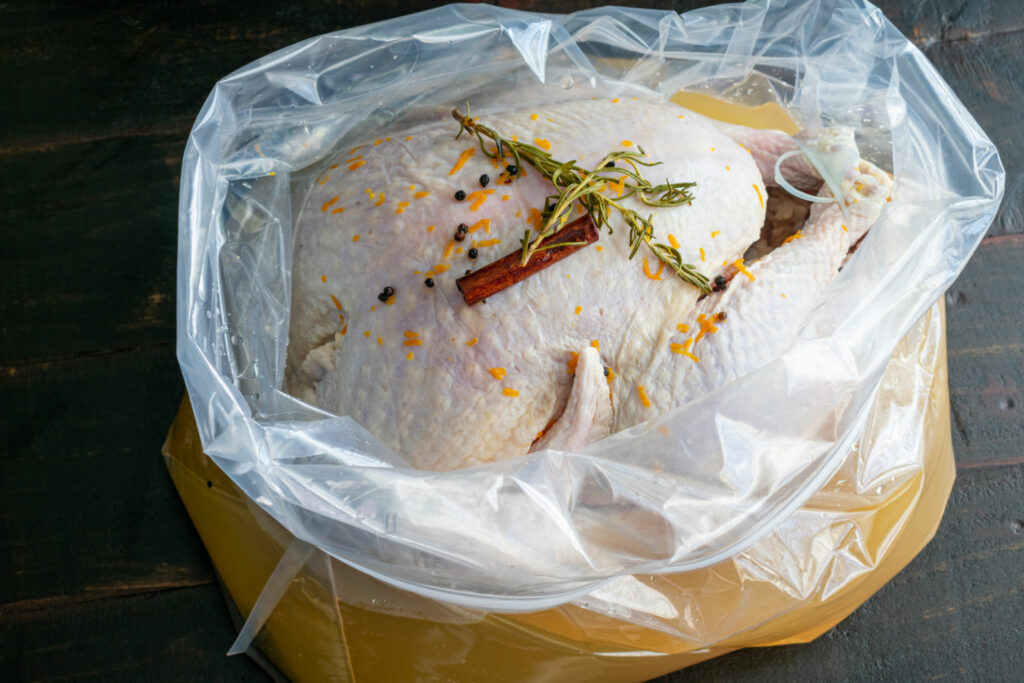
What Is Brining And What Is Marinating – And Which One Is Better For Your BBQ Needs?
When it comes to prepping your meat for the grill, you have two main options: brining and marinating. Both of these methods involve using a liquid to flavor and tenderize the meat, but there are some key differences. Take a look at closer each method to see which the best option for your BBQ needs is.
· What Is Brining?
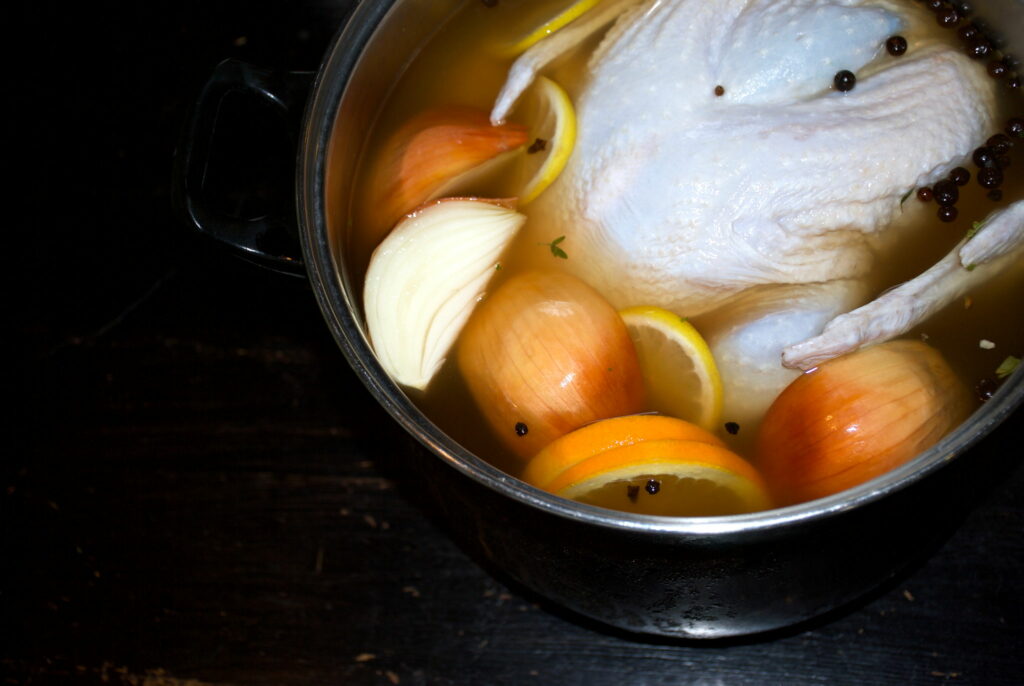
Brining is a method of soaking the meat in a saltwater solution. It tenderizes the meat and also infuses it with flavor. The key to successful brining is to use the right ratio of salt to water.
Too much salt will drive the meat too salty, while too little salt will not have any flavor. You can also need to make sure that the meat is completely submerged in the brine solution.
· What Is Marinating?
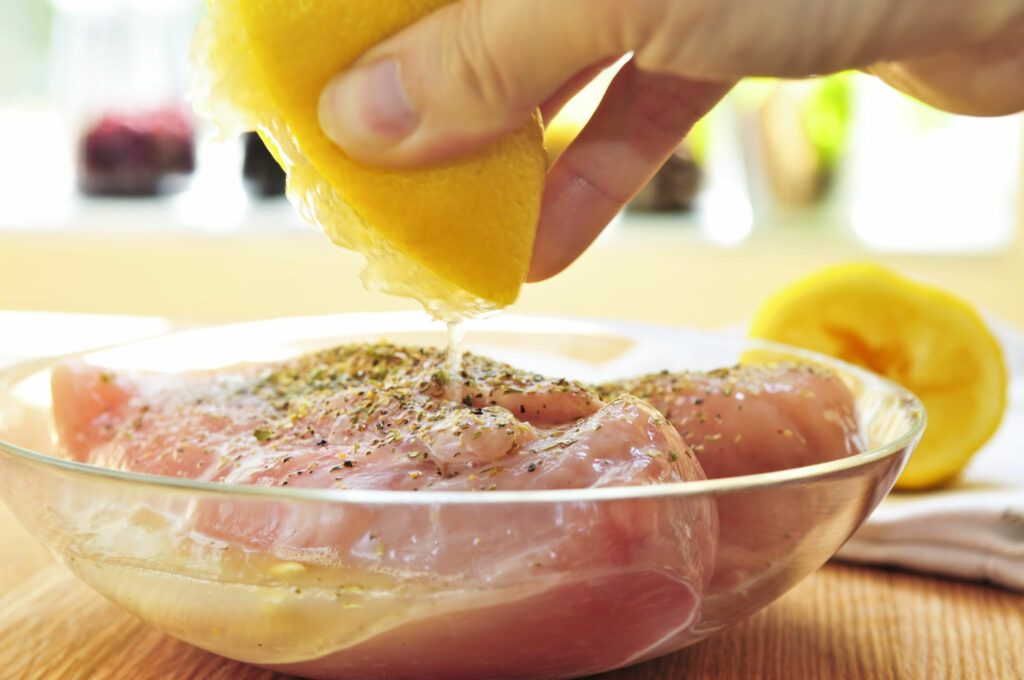
Marinating is similar to brining, but instead of using saltwater, you use a flavorful marinade. This could be anything from a simple olive oil and vinegar mixture to a more complex mixture of herbs and spices.
The key to successful marinating is to make sure that the meat is completely covered in the marinade. On average, marinate your meat for at least 30 minutes, but up to 24 hours for best results. Also, be sure to discard any unused marinade, as it could contain bacteria from the raw meat.
So, Which Is Better – Brining Or Marinating?
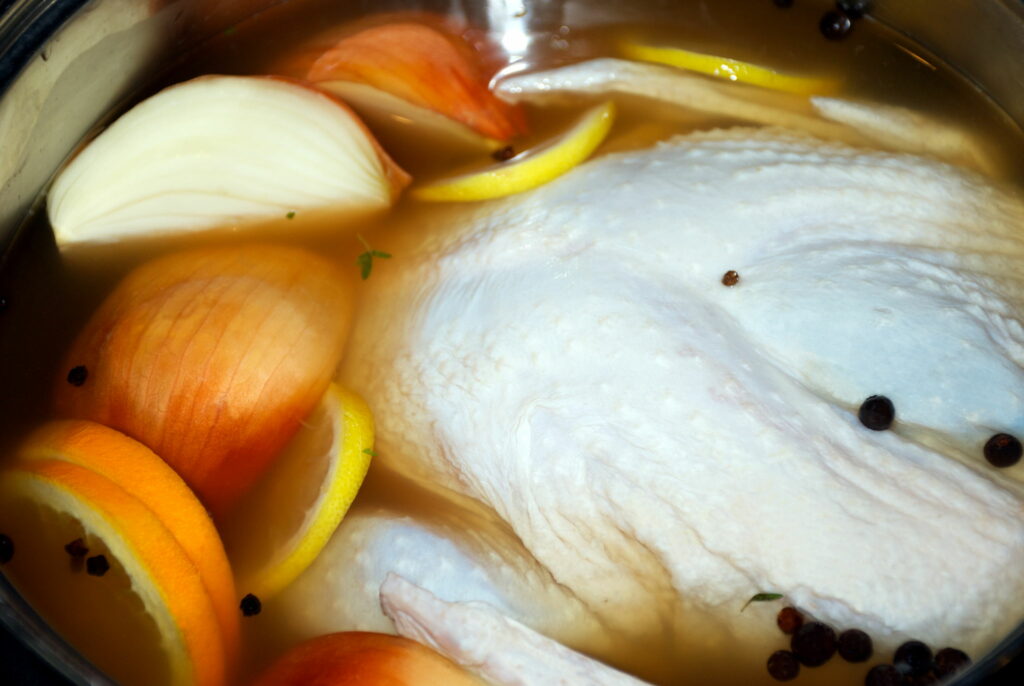
There is no right or wrong answer to this question – it all depends on your personal preference. If you’re looking for a fast and easy way to flavor your meat, then marinating is the way to go. However, if you’re looking for a more intense flavor, then brining is the better option.
What Are The Differences Between Brining And Marinating?
In general, both brining and marinating are effective ways to flavor and tenderize your meat. There are some other differences between the two methods. Below, I’ve listed some of the main differences between brining and marinating:
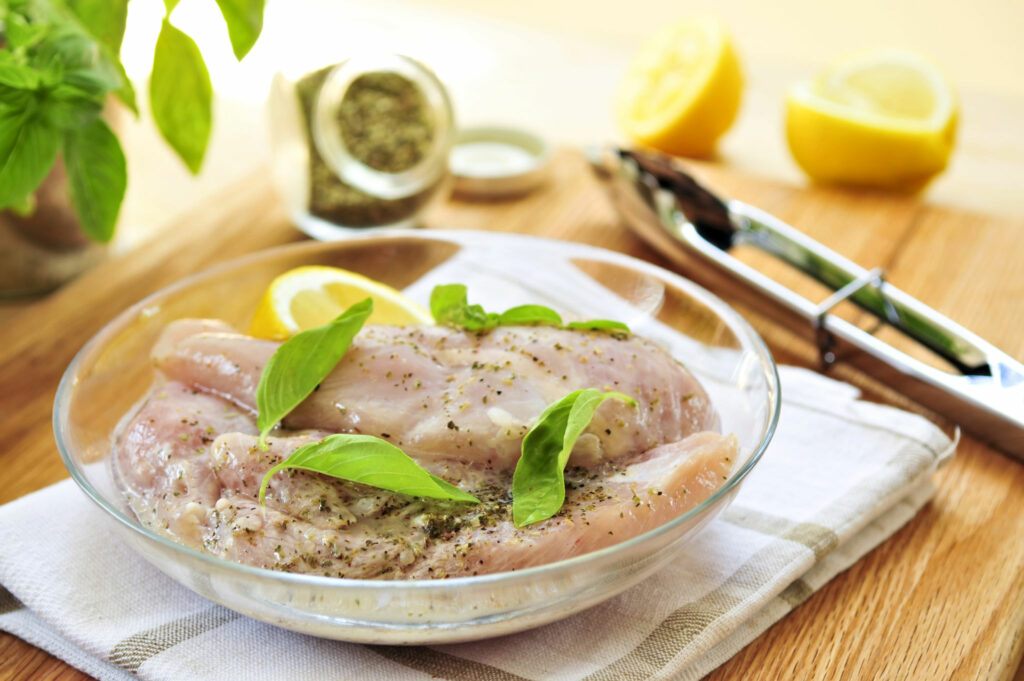
1. Brining uses saltwater, while marinating uses a flavorful marinade.
2. Brining is more effective at tenderizing meat while marinating is more effective at flavoring meat.
3. Brining requires a longer time commitment while marinating can be done in as little as 30 minutes.
4. Brining is better for large cuts of meat while marinating is better for smaller cuts of meat.
5. Brining can make your meat too salty while marinating will not.
6. Brined meat will have a more moist texture, while marinated meat will have a more tender texture.
7. Brining is better for pork and poultry while marinating is better for beef and lamb.
8. Brining is better for BBQ while marinating is better for stir-fries and other cooked dishes.
9. Brining is a more traditional method while marinating is more popular in recent years.
What Are The Benefits Of Brining?
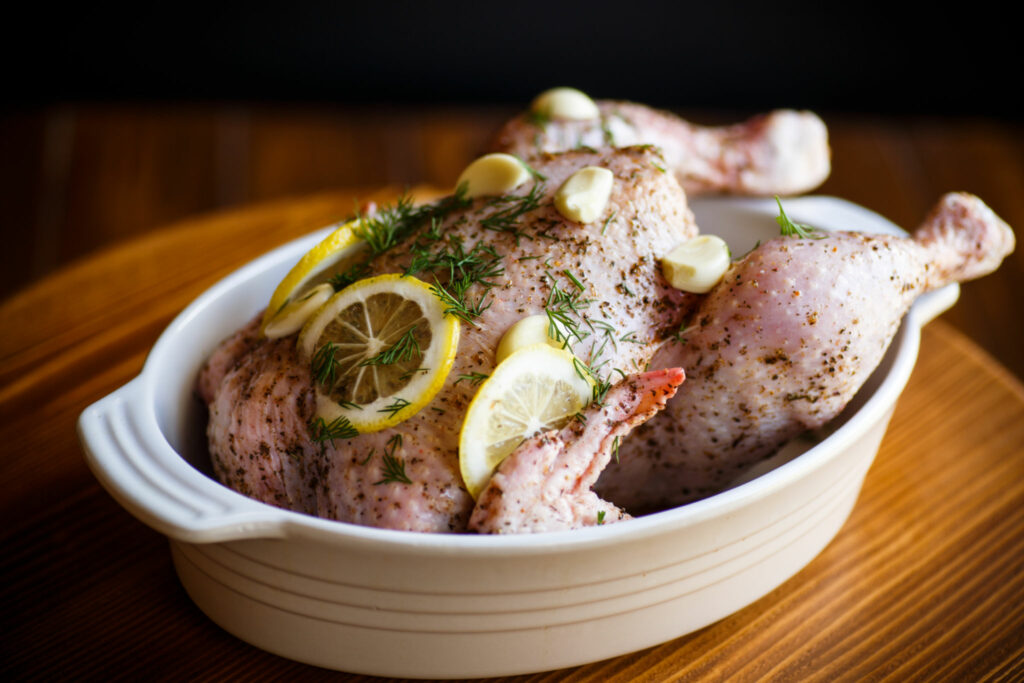
Brining has a number of benefits that make it a great option for flavoring and tenderizing your meat. Now, I’ll list some of the key benefits of brining below:
1. Tenderizes The Meat.
Brining helps to break down the tough fibers in the meat, which makes it tenderer. In fact, many restaurants and butcher shops use brining as a way to tenderize their meat before selling it. Also, if you’re planning on cooking a tough cut of meat, such as brisket or pork shoulder, brining can be a great way to tenderize it. Check out this amazing blog on Pork Shoulder Brine: Is It Necessary? Why or Why Not?
2. Moistens The Meat.
Brining keeps the meat moist, preventing it from drying out during cooking. When you cook meat, the heat causes the juices to evaporate, making the meat dry. However, when you brine meat, the salt helps to keep the juices inside the meat, making it moister. This is especially important when cooking lean cuts of meat, as they are more likely to dry out.
3. Can Be Used With Any Type Of Meat.
Brining is effective with any type of meat, including chicken, pork, beef, and lamb. For best results, use a meat that is at least 1-inch thick. You can also brine smaller pieces of meat, such as chicken breasts or pork chops.
4. Helps To Infuse Flavor Into The Meat.
The salt in the brine draws the flavor into the meat, resulting in a more flavorful dish. Some people also like to add additional flavors to the brine, such as herbs, spices, or fruit juices. It is a great way to customize the flavor of your meat.
5. Easy To Do At Home.
Brining is a relatively simple process that can be done at home with just a few ingredients. You’ll need a big container (such as a bucket or cooler), salt, water, and your desired flavorings. Make sure to follow the recipe carefully.
6. Can Be Done Ahead Of Time.
Brining can be done several hours or even days in advance, making it a great option for busy cooks. In the fridge, brined meat will keep for up to 5 days. Don’t miss reading this post on brine brisket: should it be done.
7. Versatile.
You can use brining for a variety of different dishes, including BBQ, stir-fries, and more. Many people also like to brine their Thanksgiving turkey for a moist and flavorful bird.
What Are The Benefits Of Marinating?
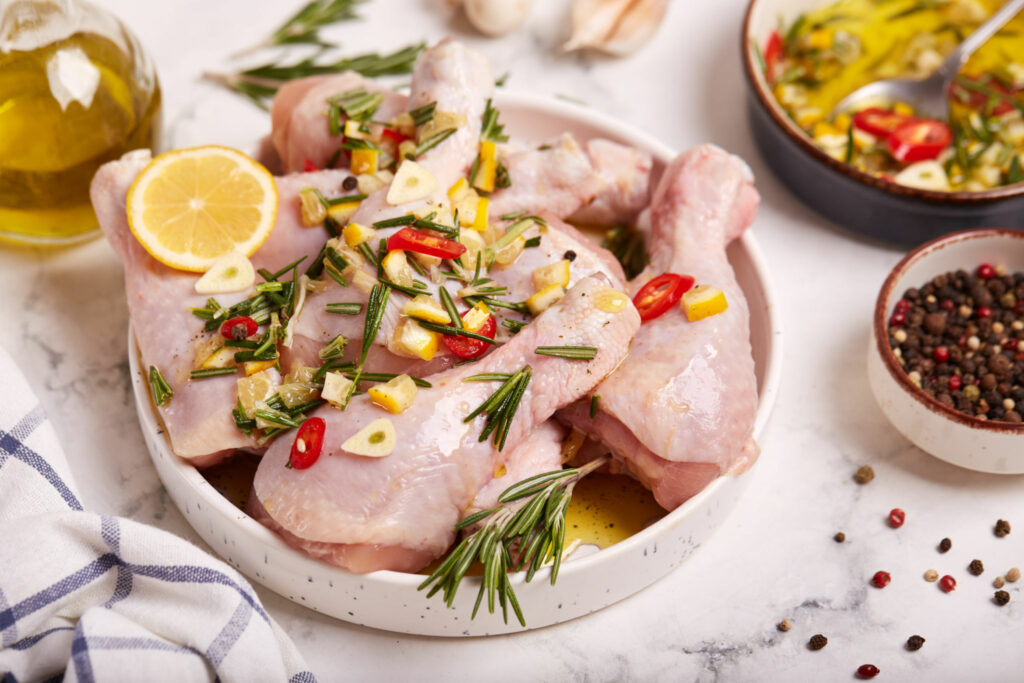
Marinating has a number of benefits that make it a great option for flavoring and tenderizing your meat. Here are few of the key advantages of marinating:
1. Best With Any Type Of Meat.
You can marinate any type of meat, such as chicken, beef, lamb, and pork. I would recommend using a leaner cut of meat for best results.
2. Enriches The Flavor.
The acidic elements in the marinade help to draw the flavor into the meat, resulting in a more flavorful dish. While salt is also a key ingredient in marinades, it doesn’t play as big of a role in flavor infusion as the acid does.
3. Simple Process.
You don’t need any special equipment to marinate meat. It is a relatively simple process. Simply combine the ingredients for your marinade in a resalable bag or container, add the meat, and let this sit for minimum 1 hour.
4. Tenderizes The Meat.
When used with tougher cuts of meat, marinating helps to tenderize the meat and make it tendered. The acid in the marinade ensures that the meat is cooked evenly, resulting in a more tender dish.
How To Choose The Right Brine Or Marinade For Your Meat?
It really depends on the type of meat you’re cooking and your personal preferences. Choosing the right brine or marinade is a matter of experimentation. Below, I’ve outlined a few general guidelines to help you get started.
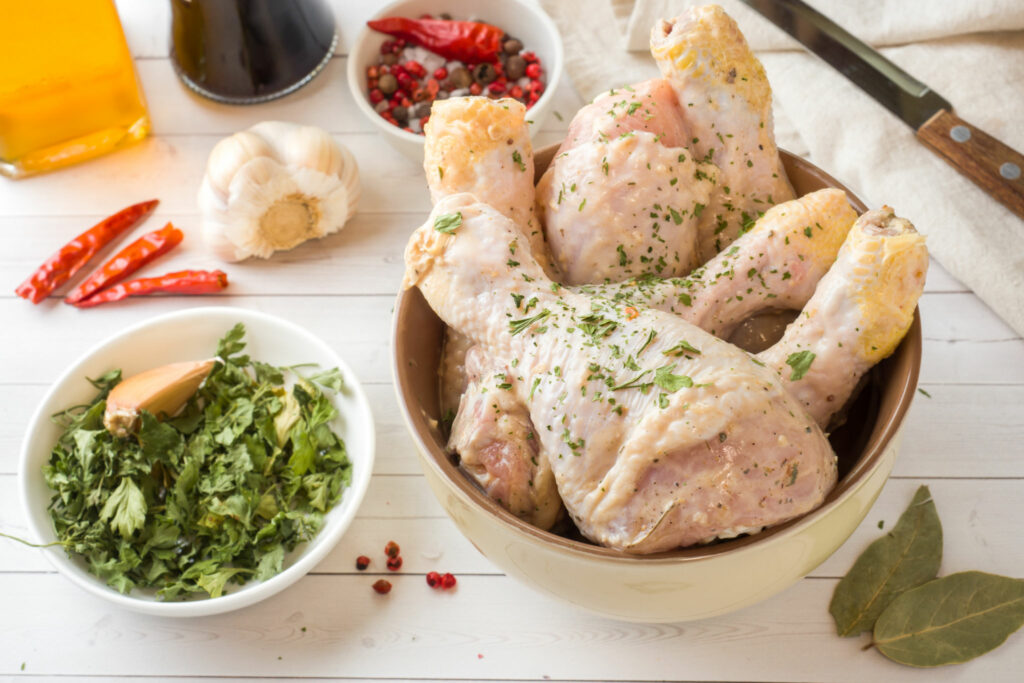
1. The Type Of Meat You’re Cooking.
As a general rule, leaner cuts of meat benefit most from brining, while tougher cuts of meat benefit most from marinating. This is because brining helps to keep the meat moist, while marinating helps to tenderize the meat.
2. The Thickness Of The Meat.
Thicker cuts of meat (1 inch or more) are best suited for brining, while thinner cuts of meat (less than 1 inch) are best suited for marinating. This is because it takes longer for the flavor to penetrate thicker cuts of meat.
3. The Cooking Method.
Different cooking methods require different approaches. For example, grilling and frying benefit most from marinating, while roasting and baking benefit most from brining. This is because marinades add flavor to the surface of the meat, while brines infuse flavor throughout the meat.
4. Your Personal Preferences.
In the end, this actually comes down to your personal preferences. Try different combinations of brining and marinating until you find something that you like.
5. The Ingredients You Have On Hand.
Not all ingredients are created equal. Some ingredients (such as salt) are important to both brining and marinating, while others (such as herbs and spices) can be used interchangeably. Pick the ingredients that best suit your needs and preferences.
6. The Time You Have Available.
Brining requires more time than marinating, so keep that in mind when making your decision. If you’re short on time, marinating is the way to go.
7. The Flavor You’re Going For.
If you’re looking for a bolder flavor, marinating is the way to go. If you’re looking for a more subtle flavor, brining is the way to go.
8. The Texture You’re Going For.
The texture of the meat can be influenced by both brining and marinating. Brining makes the meat renderer, while marinating makes the meat moister. Choose the texture that you prefer.
Conclusion
So, what’s the verdict? Is brining better than marinating for your barbecue? The answer is… it depends. If you have a lot of time to spare and want maximum flavor penetration, then brining is the way to go.
However, if you need something that’s quick and easy (or if you’re using a gas grill), then marinating will do the trick just fine. At GrillCharms, I love both methods – so feel free to experiment until you find what works best for you!
- The 9 Best BBQ Grills for Smoking Brisket - December 29, 2022
- 6 Mouth Watering Grilled Shrimp Recipes - September 16, 2022
- 6 Delicious Grilled Desserts - September 16, 2022
